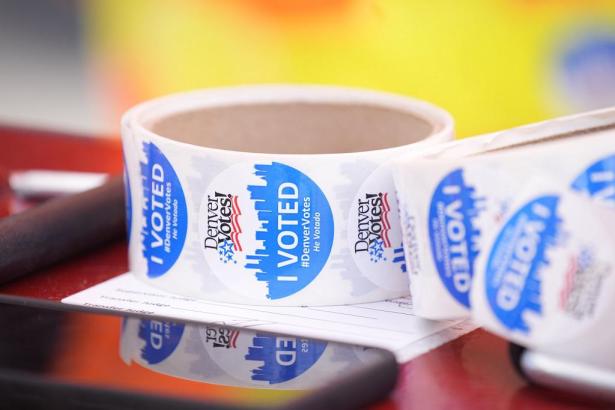Come Election Day, voters in a handful of states will not only make clear who they’re voting for but also how they want to vote. They’ll be presented with ballot measures that would move their states to ranked-choice voting, in some states (most problematically, Colorado and Nevada) combined, toxically, with jungle elections.
I’ve highlighted the toxicity of this combination because there’s no surer way to diminish our already diminished political parties, which provide us with our also diminished menus of ideological and programmatic definition, than to convert our elections into ranked-choice jungles. The only beneficiaries of this changeover would appear to be very wealthy individuals or celebrities with indistinct or concealed political profiles that would keep them from winning party primaries. In fact, it’s just such gazillionaires who’ve been funding these campaigns.
Jungle elections throw all the candidates together on the same ballot, which can lead to a runoff between two candidates of the same party (particularly if the other major party splits its votes among a passel of pols) or allow one such gazillionaire (see above) to so outspend the other candidates that he or she prevails despite tepid backing from any party’s loyalists. Ranked-choice voting in a general election, much less a jungle general election, also tends to favor candidates with political profiles so mushy that they’re the third, fourth, or fifth choice of the above-mentioned loyalists. Perfect for celebrities, and not bad for gazillionaires, either.
That explains who’s behind the ballot measure in Colorado this year. From 1999 to 2019, Kent Thiry was the CEO of DaVita, a Denver-based Fortune 500 corporation that provides kidney dialysis services, is basically funded by Medicare, and controls a little over one-third of the entire national market in dialysis provision. In three separate court actions concerning DaVita’s conduct during Thiry’s tenure, the company was fined well over $1 billion for unnecessarily disposing of drugs for which it then fraudulently billed the government, providing kickbacks to doctors who’d agreed to refer their patients to the company, and wrongful death awards to the survivors of DaVita patients. Thiry has the unusual distinction of having had an entire episode of John Oliver’s Last Week Tonight devoted to his business practices.
In recent years, Thiry has found a way into the public eye that doesn’t involve being the butt of John Oliver’s riotous critique. He’s become a force in Colorado politics, funding a multimillion-dollar campaign for his initiative, which will be put to voters this November, to establish a ranked-choice jungle voting process that will enable him to run for governor in 2026 in the absence of party primaries, which there’s no way he could possibly win. To that end, he spent more than a million dollars on primary races earlier this year to help elect legislators who wouldn’t obstruct this changeover. Despite that, one Democratic state representative, Emily Sirota, advanced a bill to amend November’s ballot measure so that it only phased in the ranked-choice/jungle combo in 12 municipalities that could serve as instructive pilot programs for the switch. Her bill made it through the legislature, and Gov. Jared Polis signed it into law.
Her bill was enacted chiefly because the combination of ranked choice and jungle elections poses a clear threat to the kind of progressive policies supported by the core Democratic Party institutions: unions, environmental groups, and minority rights groups, almost all of which have come together in Colorado to oppose that switch (also because none of them would welcome a Thiry governorship). A similar coalition has come together to oppose the kindred measure in Nevada.
The one way in which ranked-choice voting doesn’t weaken political parties is when it’s used in party primaries. In New York City, for instance, a host of progressive Democratic challengers have already declared their intention to challenge Mayor Eric Adams in next year’s Democratic primary for mayor. Those challengers will split the considerable anti-Adams vote among them, creating the possibility that Adams may be able to finish first despite claiming, say, just a quarter of the vote. But because the city has ranked-choice voting in its primaries, one of those challengers is virtually certain to come out the winner, as none of the respective challengers’ supporters are likely to cast second-, third-, or fourth-choice votes for Adams, whose term in office is generally and rightly regarded as somewhere between disgraceful and ridiculous.
Besides, there are far more effective ways to empower perspectives that are outside those of our two major parties than ranked-choice voting or jungle elections. Fusion voting, in which distinct parties with distinct perspectives can back the same candidate (long a practice in New York state) is one such way; proportional representation elections is another. But given the current state of American politics, in which celebrity can matter and money runs amok (see, e.g., Donald Trump), the voting method being offered Coloradans and Nevadans this November only deepens the descent of our political process.
===
Harold Meyerson is editor at large of The American Prospect.


Spread the word